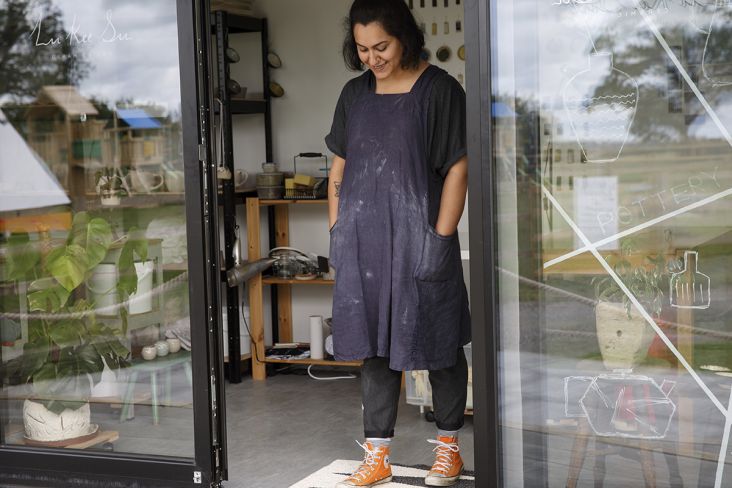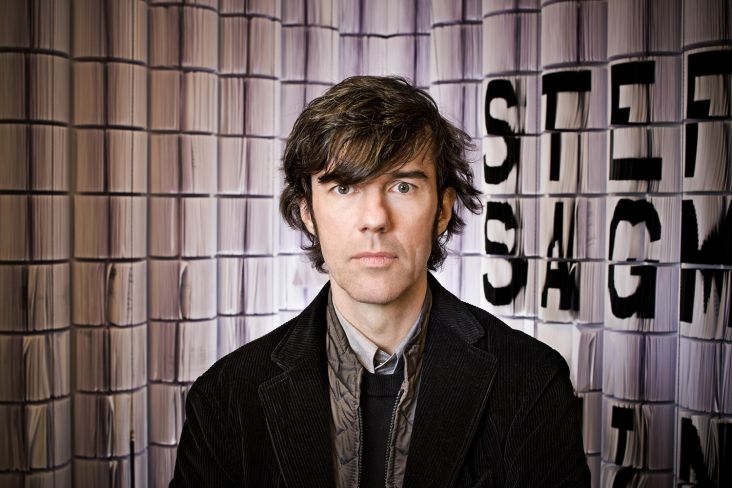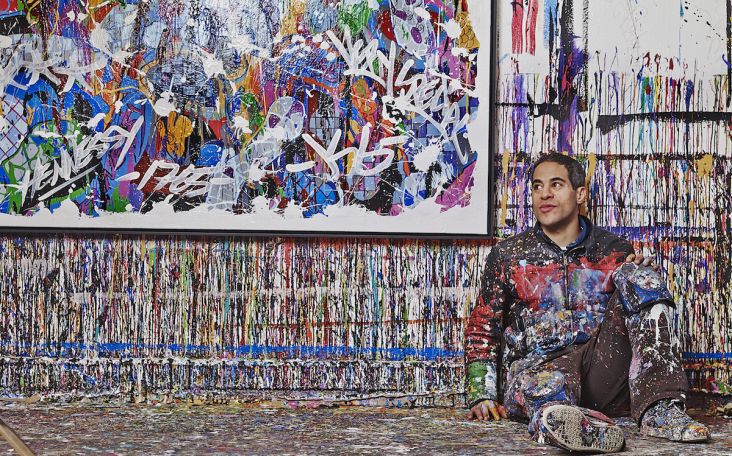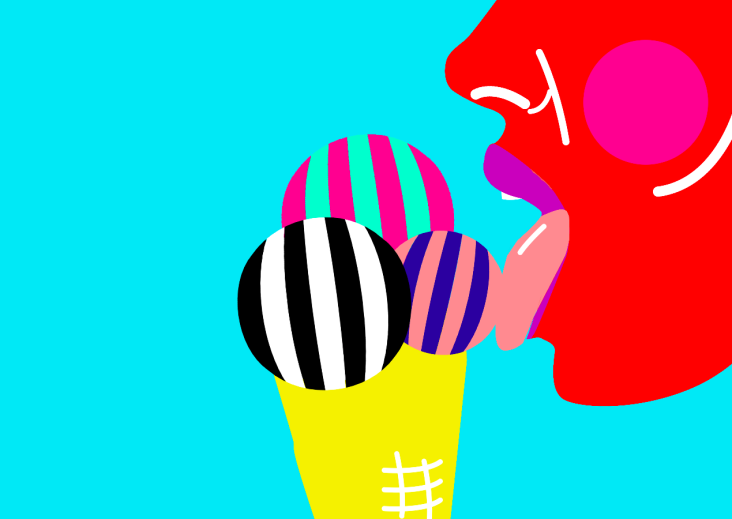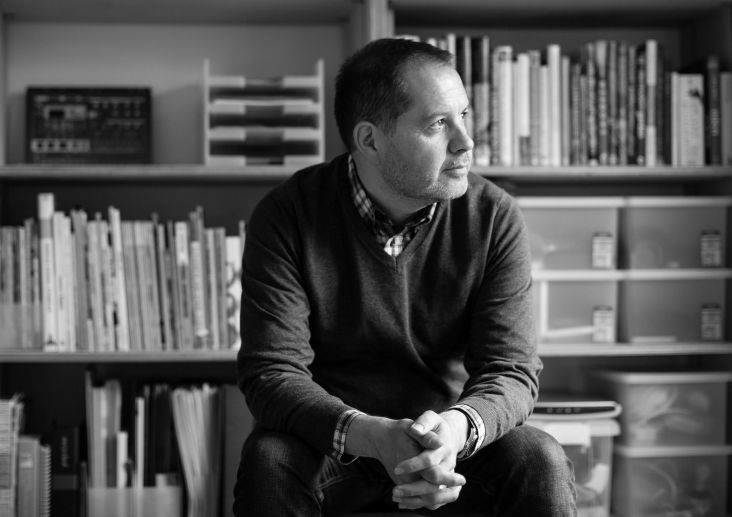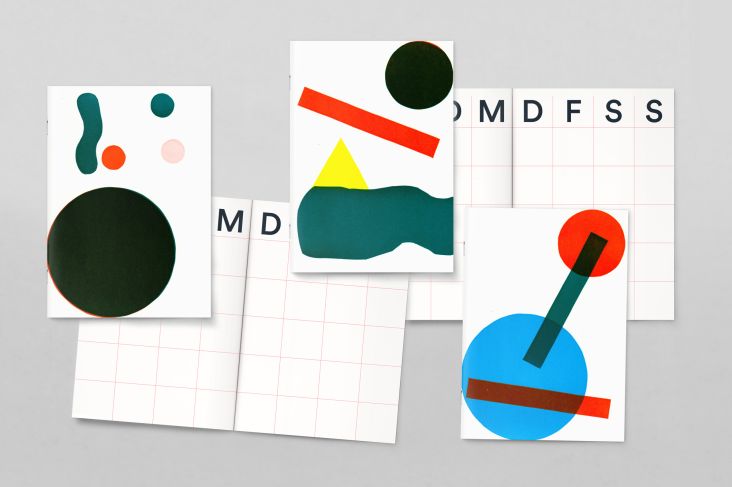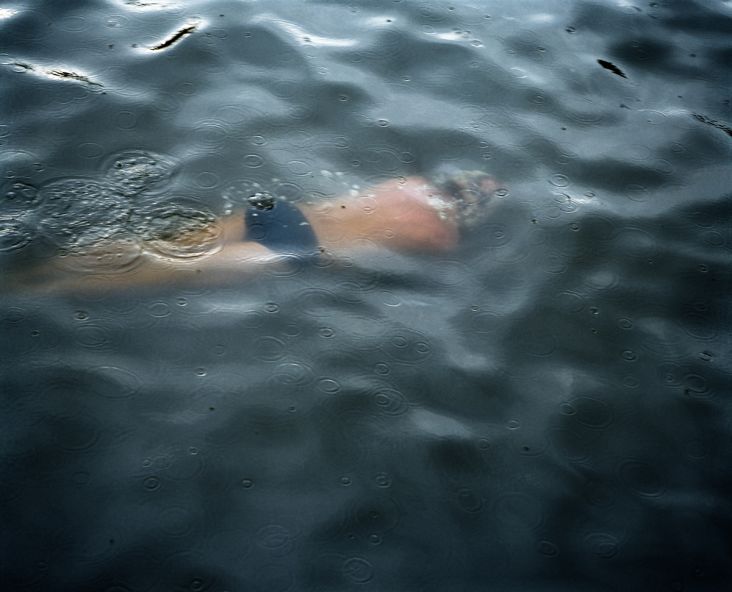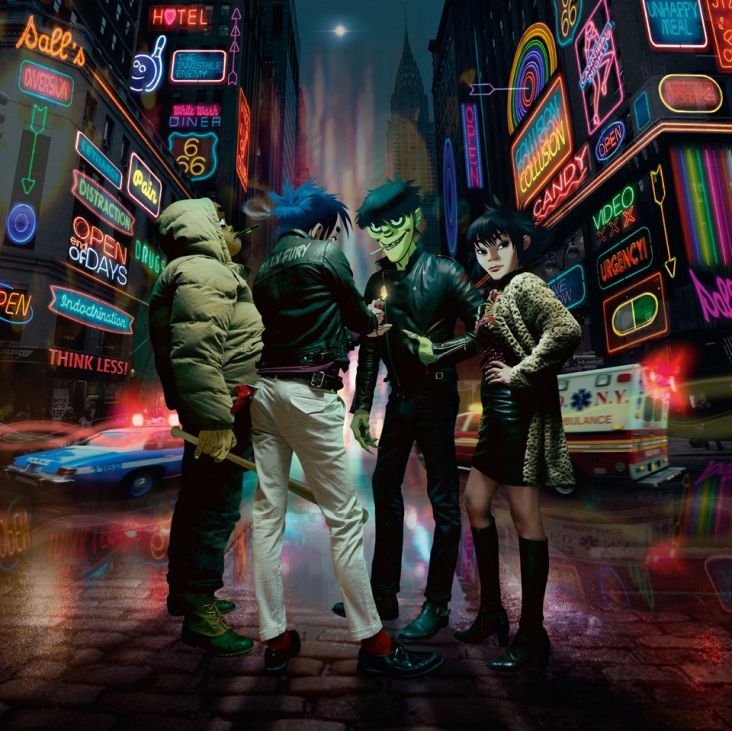Stanley Chow on the love of drawing, finding fame and why Manchester will always be home
Illustrator Stanley Chow has an unmistakable style. His sharp portraits of celebrities, footballers and musicians are loved by fans worldwide, and he's famously behind the illustrated portraits of The New Yorker's staff writers.
](https://www.creativeboom.com/upload/articles/be/be6a9c37030e334919ffcb2bfa70766d362bfca8_1280.jpeg)
Image credit: Rebecca Lupton
Born and raised in Manchester, England, where he still resides, Stan grew up in a chip shop and was always interested in the arts. But his career began as a club DJ, playing at venues around the city, including the renowned Night and Day Cafe, before he ventured into illustration, starting in fashion and working for magazines like Just Seventeen.
He became a full-time illustrator in 2006 after getting his hands on a computer and changing the way he worked, moving away from drawing to painting to more digital, vector-based work. Then in 2007, his career skyrocketed after Meg and Jack White of The White Stripes spotted and liked his work and commissioned Stan to create an artwork for their Icky Thump album. The rest, as they say, is history.
On a visit to Stan's studio recently, he was happy to give us a glimpse at the man who has become known as one of the most famous illustrators in the world. Here's a little of what we talked about.
You began your career in fashion illustration. How did that come about?
I liked fashion. I always thought I was quite fashionable in my early 20s. But aside from football and other things, I just love drawing clothes. Tall models in clothes. And I was quite good at it. I thought, if I was to break into the industry, that would be the route I would take.
So I started by sending my fashion illustrations to Elle, Vogue, Cosmo and Marie Claire in the early days before email when you'd literally post hundreds of postcard packs to magazines and newspapers. And I got some work with Elle, Marie Claire, and the Style section of the Sunday Times, More, Sugar and Just Seventeen.
When did you realise you wanted to become an illustrator?
I knew from the age of five or six. Probably earlier. As as soon as I could pick up a pen, and as far as I can remember, all I did was draw. And I remember clearly people asking me what I wanted to be when I grew up, and I always said I wanted to be an artist. I guess I geared my whole life from that age to become creative. There was no alternative other than working in my parent's chippy. That was a good enough reason to push on and become an illustrator.
So you grew up in a chip shop. Do you suspect your parents would've wanted you to continue with the family business?
Oh no. Not at all. My parents sent me to private schools. They encouraged me with my education just so I would never have to carry on the family business. When they knew I was good at art, they totally supported me, which is quite unusual for Chinese families from that era. Most Chinese kids I knew, their parents wanted them to be doctors, architects or accountants. I suppose those more "respectable" jobs.
And if you were good at anything creative, you'd be steered away from it. In contrast, my parents bought me paintbrushes, pencils, and anything I might need to fulfil my dreams. I guess working in a chippy would have been something to fall back on if it all went pear-shaped.
You were born and raised in and around Manchester. What do you love about this city so much that has made you want to stay and still call it home?
It's just so down-to-earth and relaxed here in Manchester. I live around the corner from Manchester United's football ground, where I have a season ticket. I guess when you are in the creative industries, you are told that London is the place to go to. I've spent a lot of time in London. Not living there, just visiting friends since I was 18, and I just find it too busy. Just like going to Hong Kong.
My parents were always pushing me to spend more time in their home country too because there would be work there, but no. I didn't really like it. There were just too many people. Here in Manchester, there's everything I need right on my doorstep, with email and the internet now at my fingertips. It doesn't matter where I pursue my career now either. It probably mattered 20 years ago, but not at all in this day and age. It still feels like a big city, which I like, but it's just way mellower than London.
You certainly get that feeling when you come off the train from London and start to relax again. So you specialise in portraiture. Did that come about from a project with the White Stripes?
Well, no. I've always loved portraiture. At school, it was what I mainly did. It was a way of being popular at school, doing caricatures of my schoolmates and teachers. But when I left college, I didn't feel like I had the confidence to get even close to being as good as a few of my heroes back then, like Robert Risko, Charles Griffin and Gary Smith, to name a few.
These caricature artists were so good. I thought there was no way I could even remotely reach their level. Instead, I essentially became an illustrator 'for hire' for ten years. And though it was initially good, I think I was getting dragged down by taking on more and more projects that I wasn't passionate about.
So it felt like other forces were steering the ship rather than you being in control? How did you change that around?
Things had become pretty stagnant. So I thought I would have to try something else and start doing the thing I love most, which is caricatures and portraits. I started doing portraits of Wayne Rooney, Twiggy and George Clooney, amongst others, as a little side project. I also did a few gig posters, as that was a direction I wanted to head in.
From there, I created a bootleg White Stripes poster. They happened to be playing in Manchester that week. And then I put it on MySpace where someone suggested I should add it to GigPosters.com, which is sadly no longer. Somebody who worked with the White Stripes saw it and phoned me at 2am to ask if I wanted to work with them, and of course, I said yes.
I bet it was exciting?
Yeah, but at first, I thought they were calling to tell me off for creating a bootleg poster. So I was pretty surprised when they explained they wanted to hire me. They asked me to design a limited edition USB stick, which contained their album 'Icky Thump' and then six months later, it was nominated for a Grammy award!
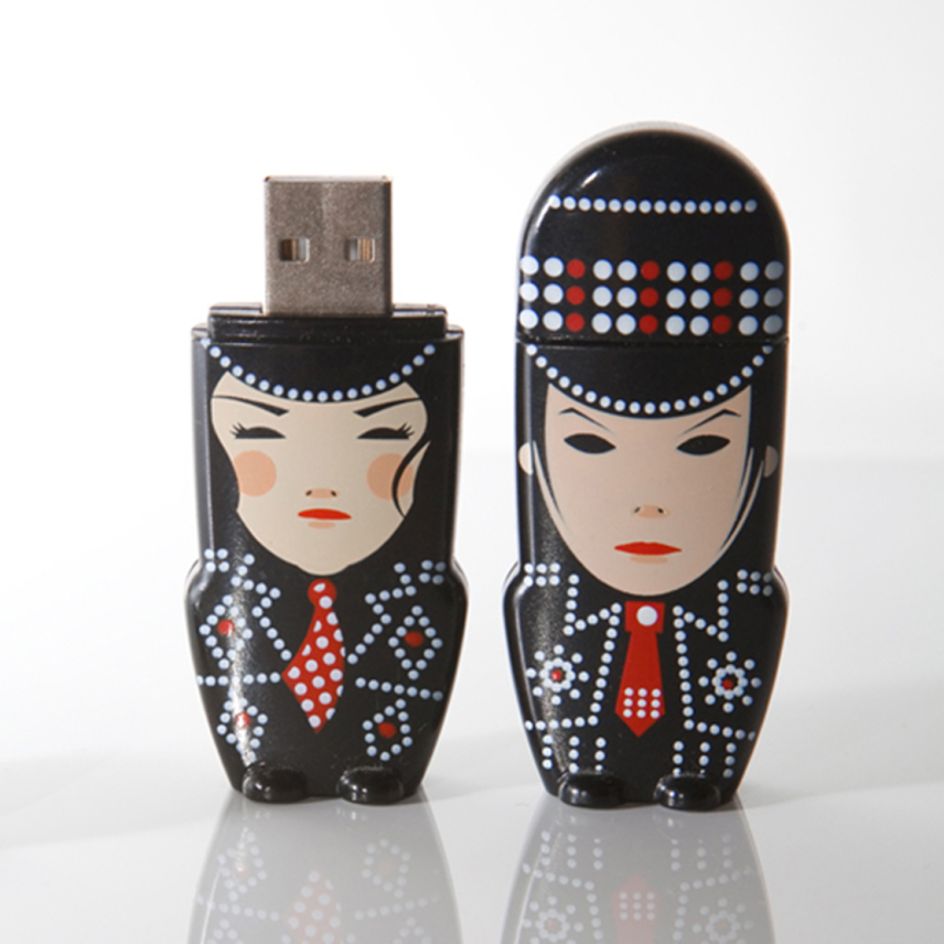
And did you find that had an impact on your career?
Oh yeah, totally, because it was all over the press. I could type my name into Google and appear in Rolling Stone magazine. It was quite a moment. And I was on the White Stripes Wikipedia page too. So things just kind of grew.
Also, with the help of Tumblr, things just snowballed. In those days, ten years ago, there weren't that many people putting content on social media. So you didn't have to fight for attention as much. It went places. You really got noticed. Back then, it was the art directors that helped spread my work to their own networks.
Was that how the relationship with The New Yorker came about?
At the same time as the White Stripes, the New Yorker got in touch, requiring an editorial illustration. But then I didn't hear from them for a year. Until they got a new art director who happened to like my work. He was a football nut and had seen lots of my footballer portraits, and said to me "I want you to be in my magazine", basically.
It was great because, as a student, we were told that being in the New Yorker was the Holy Grail of illustration. Once you get your work featured there, you've made it. You instantly become a more respected illustrator because anyone who's anyone in that industry will look through the New Yorker to find new artists to work with, it seems.
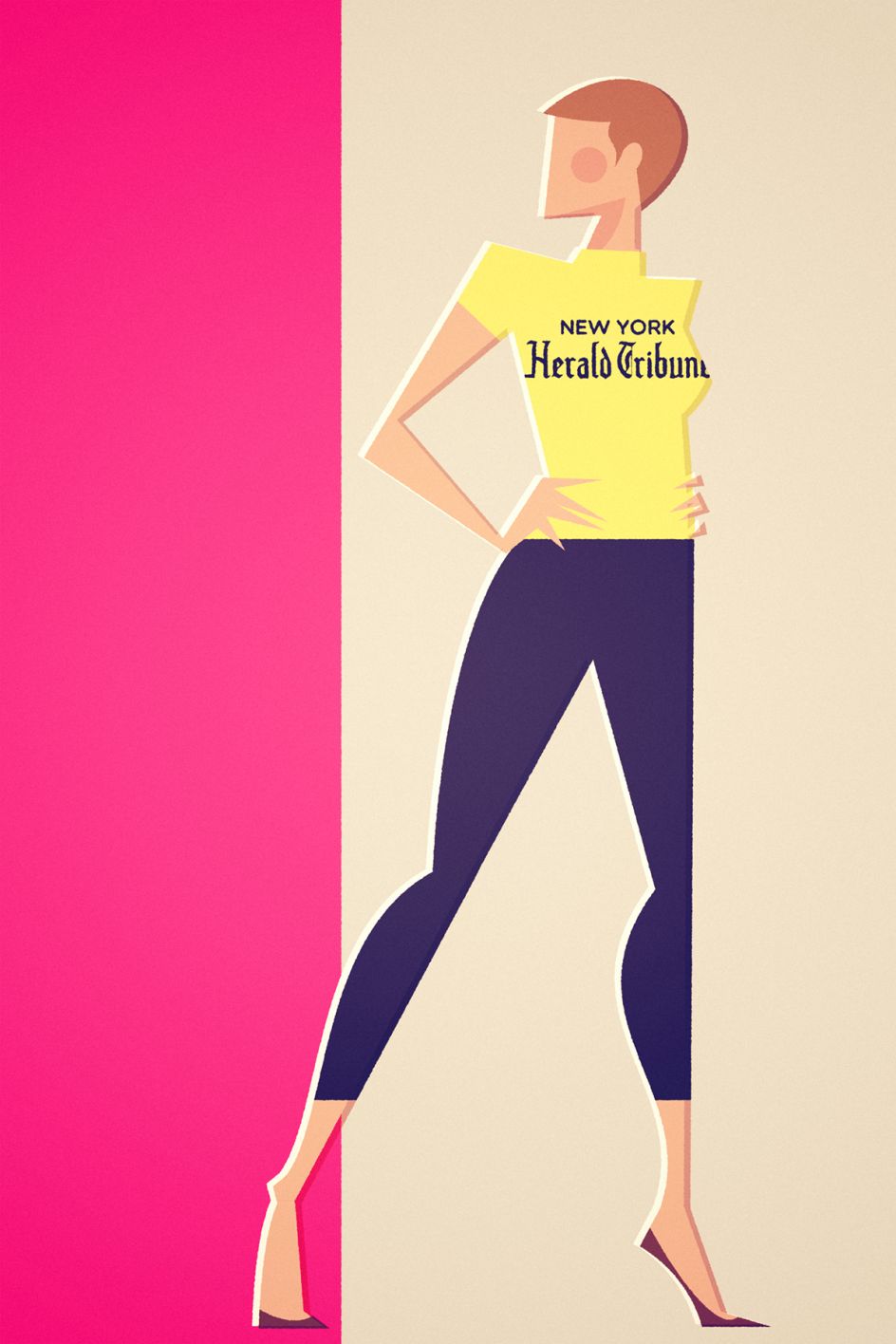
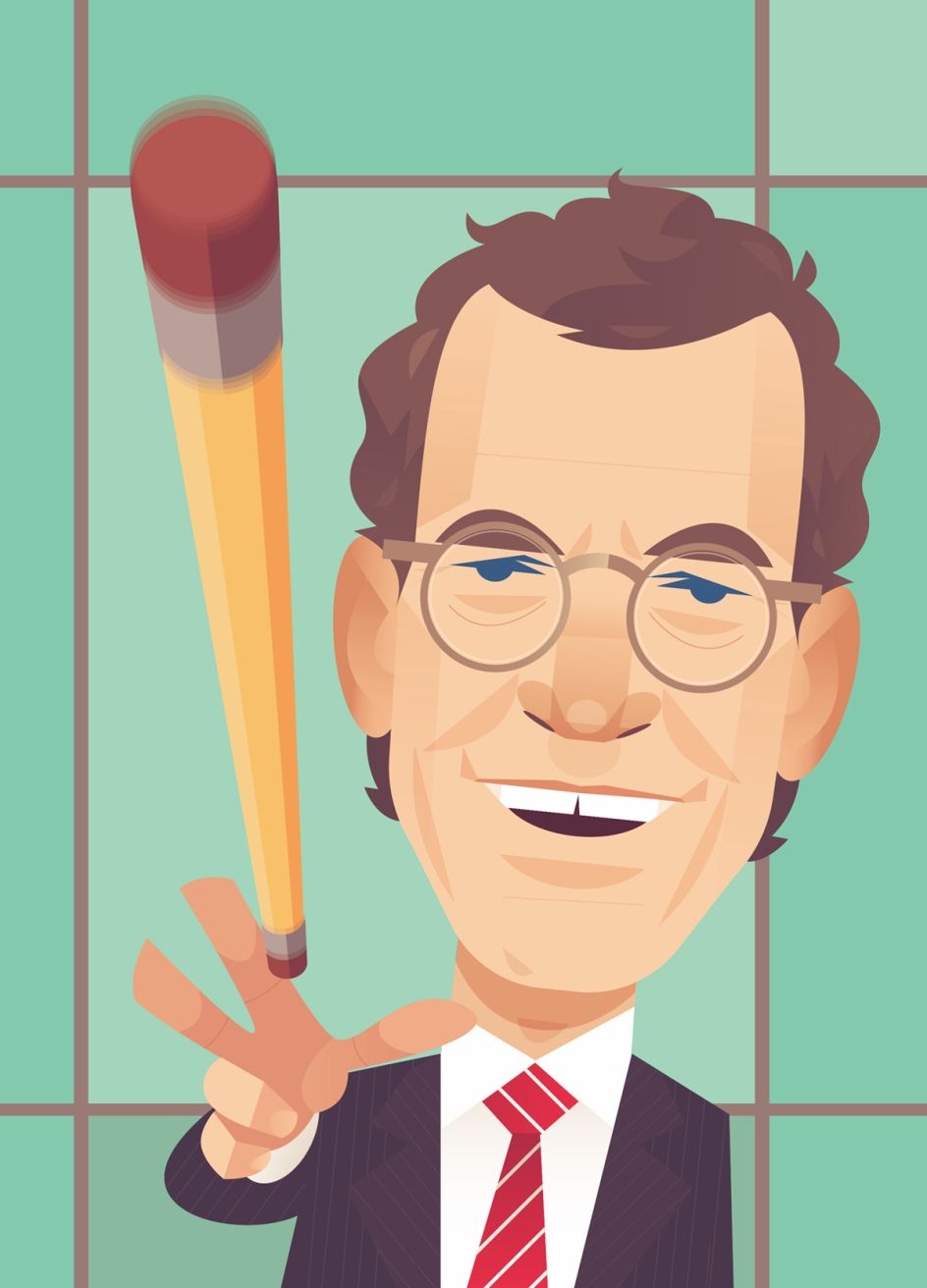
Have you found that to be the case?
Pretty much, yes. There are some weeks in America when I'm in the New York Times, Time, Wall Street Journal, New Yorker, Village Voice, Wired, all in the same week. It's pretty nuts when you consider I'm from Manchester.
Last time I was in NYC… I got chatting to local illustrators, and they were kiddingly saying, "What are you doing, taking over our city? I've been working here 10-15 years, and I've never had this much exposure". You know, it's nice being able to be up there with New York's leading illustrators.
How do you find work these days? Do you find things just come to you?
Yeah. Over the last eight or nine years, I've just waited for the phone to ring. I push myself on social media because that's fun, and it's good to keep putting yourself out there. But, for the most part, I think I'm lucky that the enquiries naturally come my way and that I don't have to work too hard to find work.
During the 2008 recession, it was a different story. It was just after the White Stripes. I was getting a good reputation, but there was not much work coming in. It was a really tough time, as I had just bought a new house and it wasn't long before I realised I couldn't afford the mortgage. I used social media to help 'rebuild' what seemed like a doomed career. Thankfully, things picked up, and it's been non-stop since then.
Do you ever have moments when you feel things might be slowing down. Do you worry about another recession?
I thought we might have had another one this year. But it didn't seem to happen despite Brexit. At the start of every year, I always think my work will start slowing down. I always think I've peaked. It's going to be doom and gloom. I guess because of this paranoia, I do prepare myself for the worst. I have loads of ongoing side projects that I can launch at any moment. If anything like the recession of 2008 would happen again, I feel I'd be ready to handle it.
Do you ever suffer from imposter syndrome?
No. I know I'm good. Though I never expected to reach these heights. I'm doing far better than I could have ever imagined. I thought I'd still be in my bedroom, drawing at my desk. I didn't predict I'd have to hire assistants, interns or an in-house accountant.
I never expected people emailing me 20-odd times a day wanting to hire me. Without blowing my own trumpet, I also feel I've reached a "celebrity" status. Sure, my peers know me, but my work has extended out beyond the creative industries to the general public. I get stopped on the street for selfies far too often.
Your prints are sold worldwide. Your style is instantly recognisable. Even my neighbour has recently purchased about 12 of your portraits to hang in his lounge.
I was in The Observer magazine the other weekend. They had a feature on someone's new loft apartment and had taken photographs of the interior. I spotted some of my prints on the guy's wall – The Green Lady, Dolly Parton and Grace Jones. I felt pretty proud of that. My wife goes on Rightmove a lot. She spots many of my prints whilst eyeing up potential new homes.
Have you got a favourite portrait?
Andrea Pirlo is probably up there. I particularly like that.
He's got a nice angular face to draw, right?
It was when he grew a beard that's when I found him particularly sexy.
Well, that's something we can both agree on [laughs]
[Laughs] Yeah, I didn't care much for him until he grew a beard. But then, when he did, I started noticing how good his football was. Yeah, I definitely have a man-crush on Pirlo and his beard.
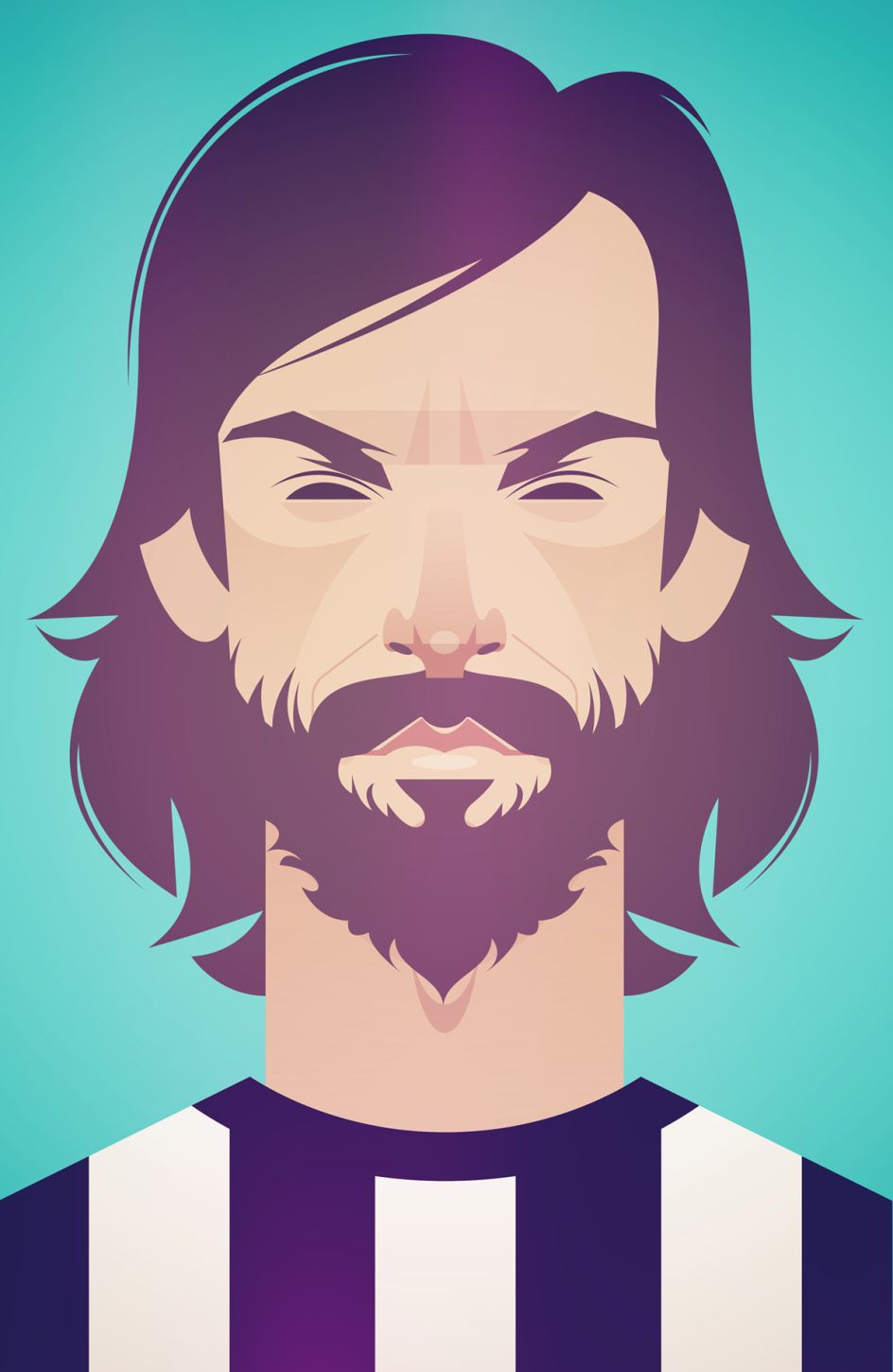
How do you decide who you'll draw? Is it mainly from requests?
There's no real decision making going on. I have a long list of people I want to do. It's people who I greatly admire usually. The problem with requests is that I frequently get asked to illustrate people who I don't particularly like or want to illustrate. If there's a request that comes in, and the person that's been requested is on my list, then it's likely that the person will be drawn sooner.
What's your most popular print? What sells the most?
Eric Cantona, and probably The Green Lady too.
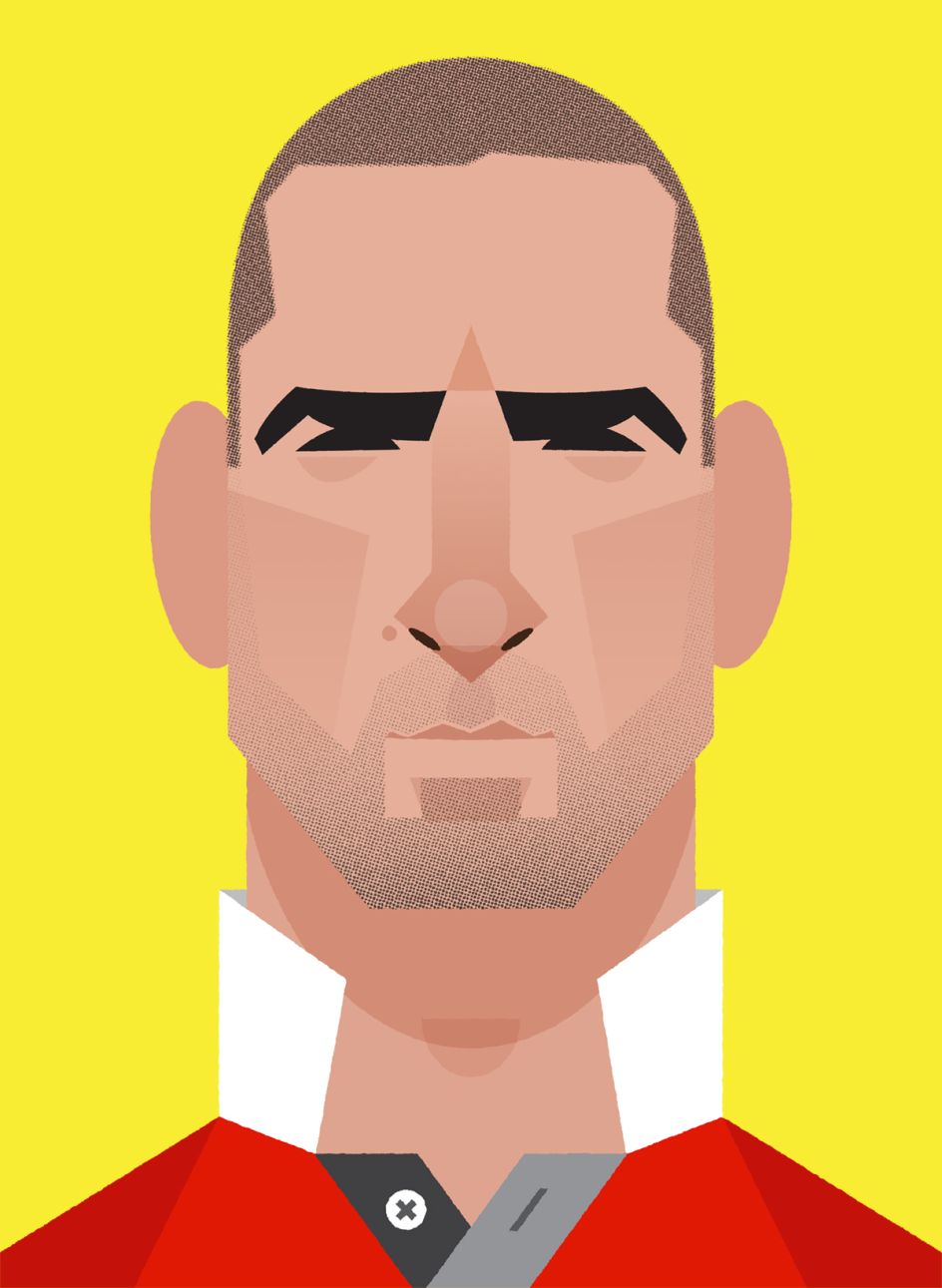
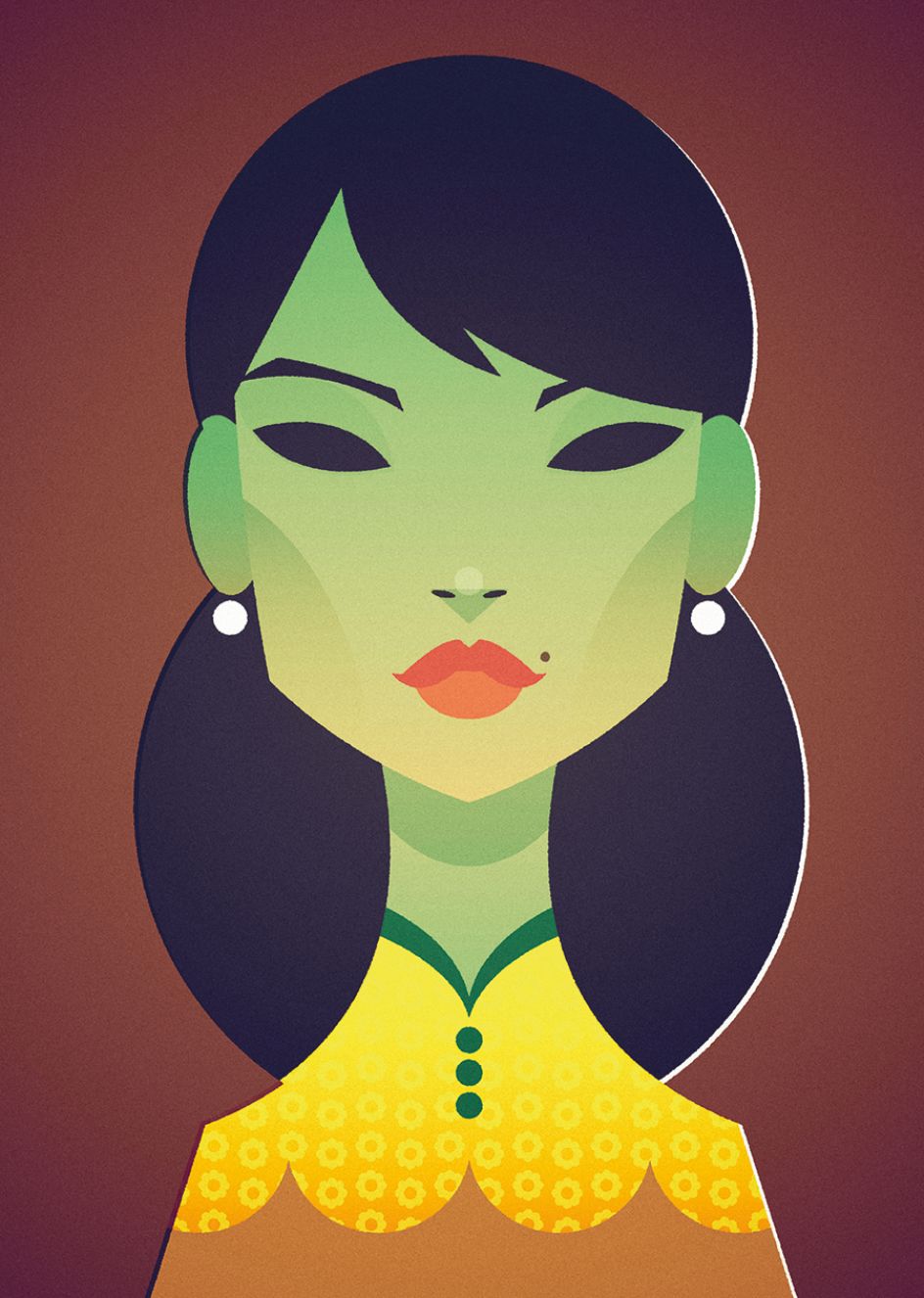
What's been popular that's surprised you?
Gosh, I don't know. I'm personally surprised that any of them sell, to be honest. [Laughs]
You're a massive football fan. What's happening with Stanley Chow FC?
Oh, that's one of my side projects to fall back on if things go quiet. It's also a passion project. It's basically because I love football kits. And consists of illustrations of my favourite kits on certain players.
There's a snazzy website (www.stanleychowfc.com) for it too… That's grown into other things since I launched it at the start of this year. Some of the artworks are now on display in the National Football Museum in Manchester. So that's great. They've been very popular in Germany, particularly as mobile phone covers. I've also done work for Hotel Football, Man Utd, and Adidas based around my Stanley Chow FC project too.
More recently, I'm working on another side project called Mannequin, which is a similar concept to Stanley Chow FC. It's a return to my early days of fashion illustration—something I'm planning to launch next year. I'm basically finding nice iconic dresses/outfits and sticking them onto a 'mannequin', creating a series of artworks. It will have a similar look and feel to the Stanley Chow FC project.
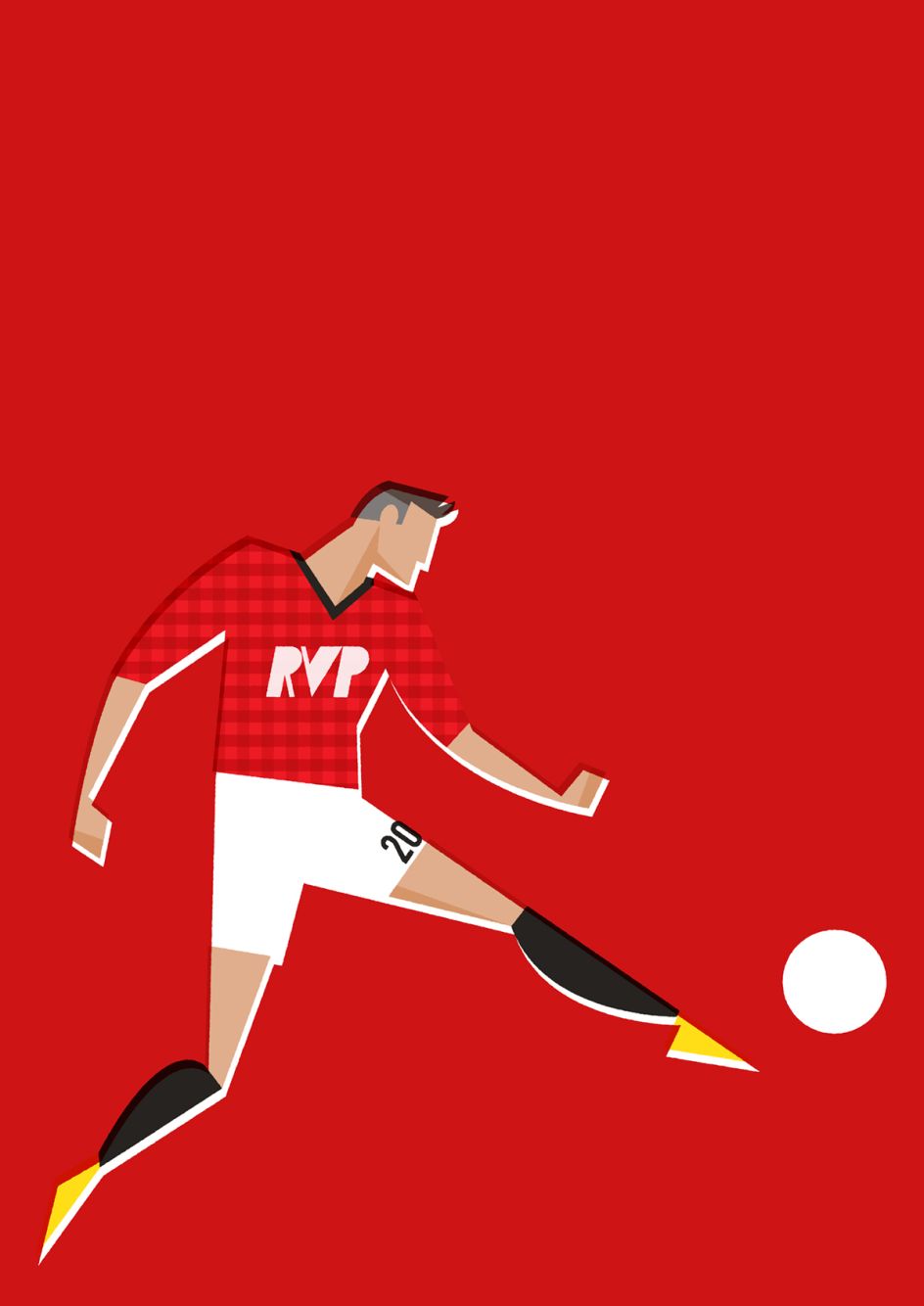
Is there anything else you can tell us about yourself that might surprise us?
Yes. I want to quit illustration in five years time and be a painter.
Oh right, so you'd like to retire?
Well, yeah. I've had to meet deadlines every day for the last ten years or so, and the stress of meeting daily deadlines is beginning to take its toll on me. When I hit 50, I maybe don't want to do as much. Work purely for my own pleasure. Essentially I want to be an artist for art's sake and to paint more (with real paint and paintbrushes).
I wanted to do this originally. But you end up having to pay the bills. It's the business that dictates, really.
It's a struggle, isn't it? You want to do what you love for a living, but often you're pressured to do things you might not want to do.
I guess that's part and parcel of being a mercenary freelance illustrator. Essentially I'm a 'gun-for-hire'. Don't get me wrong. I still want to draw, illustrate, be an artist. I can't imagine doing anything else. I just don't want to do so much for other people.
Is there anything that frustrates you about the industry?
It's not necessarily the industry. I'm more frustrated for not saying "no" more often. Obviously, the more popular you become, the more people want to hire you. And that's great. I'm super grateful for that. But it's just finding the courage to turn things down.
I suppose it comes from that mindset I adopted in the early days, and particularly during the global recession, that you have to say "yes" to everything because you never really know when your next project/commission is coming in. You have to survive… bills, food, feeding the kids... even if it means illustrating something you don't want to.
But even today, despite being relatively successful, I am still learning to try and say "no" more often. But then I suffer from this immense guilt. I hate letting people down. I've realised, for my own sanity, I have to sometimes turn things down. Having said all that, you are also handed commissions that you want to do regardless of the money or how busy you are, e.g. opportunities to work with Man Utd.
Do you think you've managed to achieve a good work/life balance?
Not really. I definitely don't spend enough quality time with my wife and kids. This is something that I'm starting to address.
I suppose if you have to work so hard?
Yeah, but that's just it. It's not that I need to work hard. It's the guilt and the mindset that keeps me busy. When perhaps I don't need to be. Being a freelance illustrator for so long, I should have learnt by now how to manage my time better and actually give myself more free time. That's the point of being a freelancer, right?
You've got an exhibition coming up in November, is that right?
Yes, it's at the Great Northern Warehouse where I'll be creating a series of portraits of 'Great Northerners', which includes Maxine Peake, Emily Pankhurst, L. S. Lowry, Victoria Wood, Bobby Charlton, Elizabeth Gaskell, Tony Wilson and Caroline Ahern and others.
And then there's the Manchester United exhibition. It's an evening event as part of the Museums at Night Festival. And it'll include illustrations covering United greats from past to present.
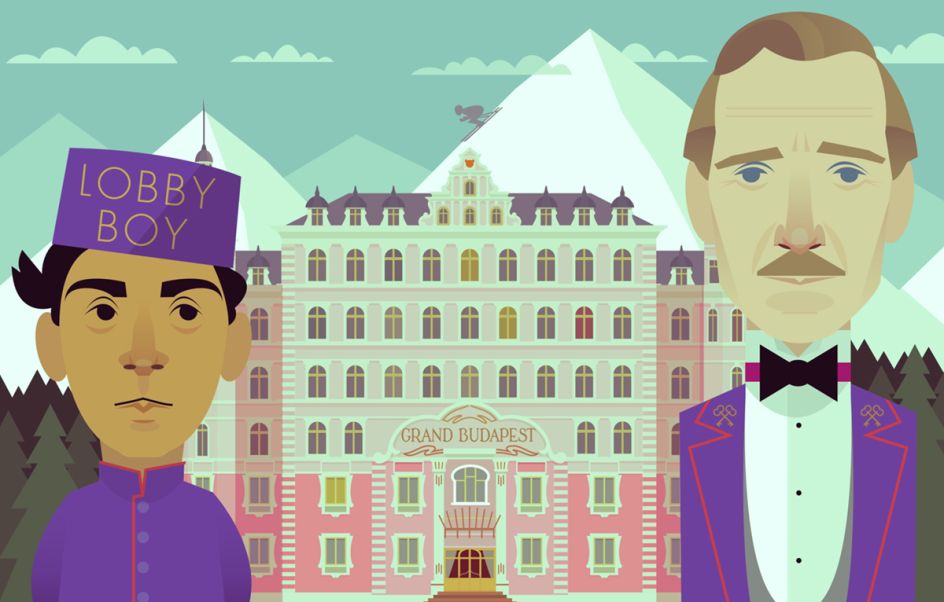
Aside from illustration, do you still love DJing? Did you spend some doing that back in the day?
Yeah, from about 1997 to 2007. However, it was a means to an end. I collected a lot of vinyl, and it was a good excuse not to have to work in my parent's takeaway. DJing allowed me not to have to look for a "proper" job and bought me time in the day to spend on illustrating at a time when I wasn't getting as much illustration work as I would like.
I did around three to four nights a week. Too much fun was to be had. I love making people dance. It was quite a hedonistic time, back in the day where I felt like I'd DJ'ed at every bar and club in Manchester. I still DJ now and again. I played at the Deaf Institute last month. It was nice to remind myself of how much I enjoyed it.

















